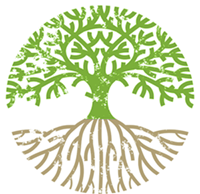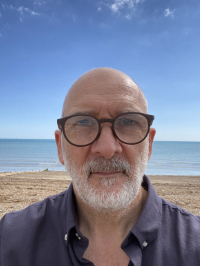
Homepage
 I am a Jungian Independent therapist working on-line and in consulting rooms in Findon Village, near Worthing, West Sussex. I offer a secure and confidential setting in which to discuss whatever issues may be troubling you - whether that is anxiety, depression or long-term emotional difficulties, or a lack of fulfilment or sense of meaning or purpose in life.
I am a Jungian Independent therapist working on-line and in consulting rooms in Findon Village, near Worthing, West Sussex. I offer a secure and confidential setting in which to discuss whatever issues may be troubling you - whether that is anxiety, depression or long-term emotional difficulties, or a lack of fulfilment or sense of meaning or purpose in life.
I have been working in the field of mental health and psychological well-being for coming up to 40 years, working for both the NHS and Social Services for a time. I qualified originally as an analyst and psychotherapist of the Society of Analytical Psychology in 1996; I am now a Jungian Independent therapist. Over this period I have worked with almost all kinds of difficulties, problems and issues.
Jungian Independent Therapy
As a Jungian Independent therapist I work in the spirit of C.G. Jung, the Swiss Depth Psychologist. The essential element of the Jungian Independent position is that every aspect of our psyche is understood to have its place. The therapist’s role is to help us accept and accommodate each part of ourselves, and to find its role and function.
When we are not able to accept, bear or express aspects of ourselves, we will likely feel in conflict, dissatisfied and unfulfilled, only living half-lives or part-lives. This can lead to depression, anxiety, turmoil, low self-esteem, self-hatred or a sense of having no meaning, value or purpose … amongst other things.
As Jung said, ‘Only what is really oneself has the power to heal’, so part of the process is about recognising who we truly are, not who we might feel we ought to be, or who we feel people might want us to be. Starting from where we are - self-acceptance - is vitally important, but it can take a good deal of psychological work to achieve this.
The alchemy of the therapy relationship
Jung held that both therapist and client are deeply involved in the process of therapy, and that the therapist’s own experiences, personality and development will play a key role in the process.
The therapist needs to be able to empathically resonate and engage with the client from their own experience for the client to be able to bring hitherto unexpressed parts of themselves into relationship and into being. This is part of the relational alchemy of the therapy process.
Individuation
Jung recognised that our psyches are all the time working toward wholeness, toward bringing unrecognised and unlived parts of ourselves into life. He called this process individuation. He recognised that this process is compelling and often imperative - even when what is going on for us may seem incomprehensible or foolhardy to others. It is about finding our own unique path. This is enlivening and fulfilling. It is about becoming truly ourselves.
The soul
After these many years of experience I have come to a simple conclusion that informs the heart of my work - that the essential process of therapy is about working with that most sensitive and sacred part of ourselves, our soul. It is through our souls that we are connected to others and the environment around us; it is through our souls that we divine what is true and right for us; it is through our souls that we find motivation, energy and life (and this can be described in terms of neuroscience too - see the further pages on this site about the soul and therapy and also the true self and its shadow).
However, due to that very sensitivity, and in an attempt to protect it, we sometimes become alienated from our souls, disconnected from others and the world around us, and lose a sense of meaning, purpose, energy and ‘life’.
Putting the soul, with its sensitivity and vulnerability, at the heart of the work puts a new perspective on what we are doing, on our journey. In the past, these sensitive parts of ourselves have too often been pathologised, and we come to feel that they are too much, bad, or selfish. Essentially the process of therapy is about coming to terms with who we are, with being human, with being soulful.
The soul journey
Jungian Independent therapists are committed to soulfully accompanying our clients on their journey of reclamation, reconnection, and individuation. It is a wholly human journey that puts us in touch with all aspects of being human, from vulnerability and trauma to sublime, transpersonal experiences.
Therapy calls for a deep trust in the psyche and in the process, and requires inspiration and guidance from the deeper Self, in a way that is soulful and spiritual in nature as well as mundane and everyday. Thus we work primarily with and from the heart and soul, not the head. Dreams can be a particularly important way of accessing and discovering what is truly going on for us.
The dark night of the soul
This journey toward wholeness will inevitably entail getting in touch with, and having to come to terms with, the experiences that we have not wanted to, or not been able to, face before. This includes experiences that were traumatic, painful, frightening and difficult, as well as parts of ourselves that we may have had to ‘get rid of’ in order to fit in, and have thus fallen into our ‘shadow’.
These might be parts that feel anxious, frightened and vulnerable, or those that are loving, open and optimistic, or those that are angry, hateful or murderous. Thus the journey is often far from comfortable and will challenge us down to our roots, precisely thereby connecting us up to the roots of our being. In this way we come to live in harmony and accordance with the everyday flow of ourselves and of reality.
